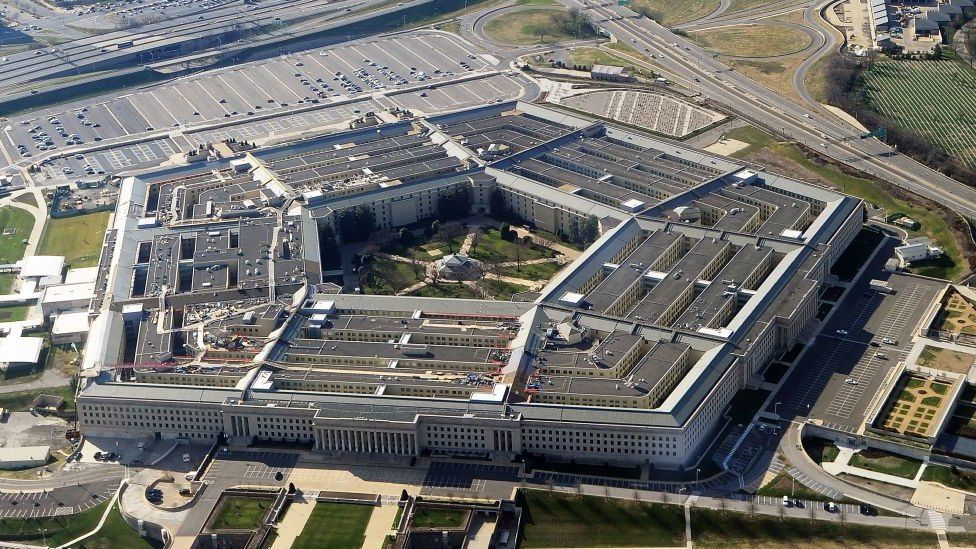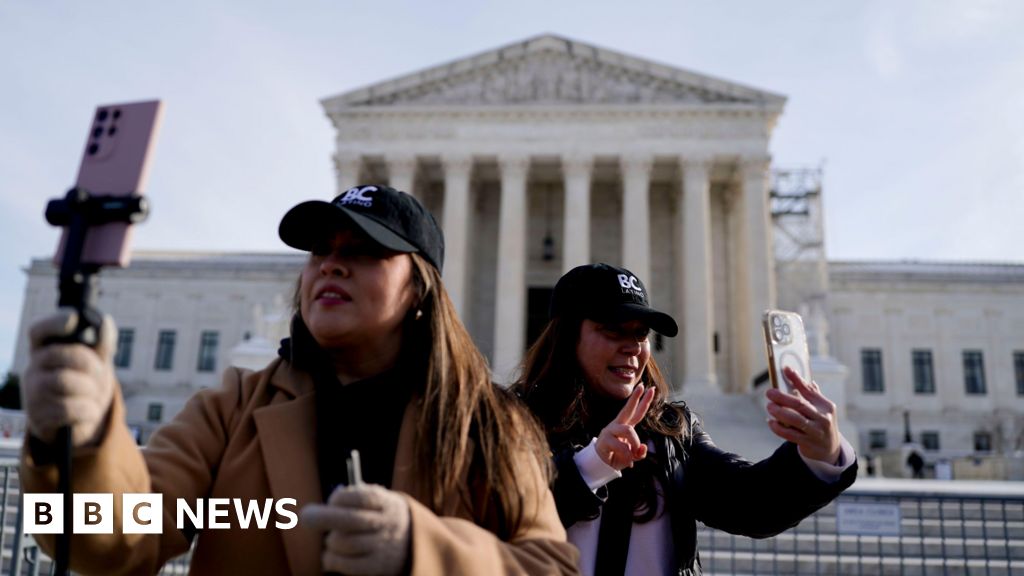 Image source, Getty Images
Image source, Getty Images
A spike in UFO sightings in the 1950s and 60s was caused by tests of advanced US spy planes and space technology, a Pentagon report has concluded.
Officials also said there was "no evidence" that the US government had encountered alien life.
Most sightings of UFOs were ordinary objects from Earth, according to the report submitted to Congress on Friday.
But Pentagon officials accepted that their research won't quell popular beliefs about alien visitors.
"The proliferation of television programmes, books, movies, and the vast amount of internet and social media content centred on UAP-related topics most likely has influenced the public conversation on this topic, and reinforced these beliefs within some sections of the population," the report said.
The report is part of a broad public attempt by the US government to examine UFOs - or as officials call them, "unidentified anomalous phenomena" (UAP).
The effort has included public meetings with Nasa officials and hearings in Congress.
Issued by the Pentagon's All-domain Anomaly Resolution Office (AARO), the report noted that public opinion has been swayed by pop culture.
A "particularly persistent narrative", the researchers said, is that the government has recovered spacecraft and alien remains and conspired to keep its alien research activities secret.
A Pentagon spokesperson said that officials had approached the report in an open-minded way, but had simply found no evidence of extra-terrestrial visitors.
"All investigative efforts, at all levels of classification, concluded that most sightings were ordinary objects and phenomena and the result of misidentification," Maj Gen Pat Ryder told reporters.
According to a 2021 Gallup poll, just over 40% of Americans think alien spacecraft have visited Earth, a number that increased from 33% in just two years.
The AARO examined archives and classified files and reviewed all official government investigations dating back to 1945.
The researchers hunted down rumours about alien spacecraft and found, for instance, that an alleged 1961 leaked memo about UFOs was inauthentic, and that an "alien spacecraft" sample collected by a UAP investigating organisation was not made of an otherworldly material but instead was made mostly of magnesium, zinc and bismuth.
The report lists new technologies that researchers believe led to spikes in UAP reports in the 1950s and 60s.
They included high-altitude balloons - one of which inspired waves of UFO speculation when it crashed near Roswell, New Mexico in 1947 - and the U-2 spy plane.
More than half of the UFO reports investigated at the time were determined to be US reconnaissance flights, according to an assessment by the Central Intelligence Agency.
A number of secret research projects involved the development of aircraft that looked circular or saucer-shaped - matching the image of alien spacecraft in popular imagination - such as the Canadian VZ-9AV Avrocar fighter-bomber, which was designed to take off and land vertically.
Image source, Getty Images/NASA
Image caption,The VZ-9 Avrocar undergoing testing at NASA's Ames Research centre in California in 1960
Over decades, the US government ran a number of UAP research programmes, however large portions of extra-terrestrial research were kept secret.
Although the Cold War accelerated technological development, the report noted that "UAP content in popular culture is more pervasive now than ever", a trend that researchers ascribe to lack of trust in the US government and the popularity of alien-related content online.
UAP sightings continue at a rate of 50 to 100 per month, according to the AARO, and speculation about government cover-ups has continued.
In 2023, former intelligence officer David Grusch testified in front of a congressional committee that he believes the US government holds alien bodies and spacecraft. Mr Grusch said he based his statements on documents, recordings and conversations with colleagues.
The AARO has promised to issue a further report examining more recent sightings and rumours at a later date.
Watch: Whistleblower claims non-human bodies were recovered from UFO crash site
 (1).png)
 10 months ago
13
10 months ago
13


















